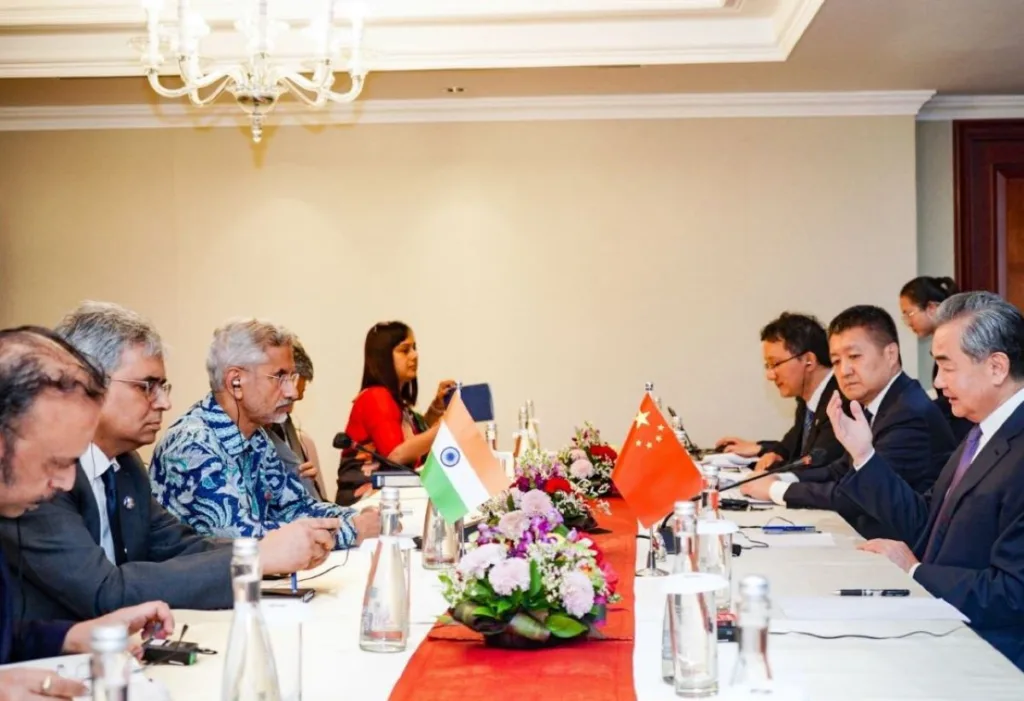Bilateral Relations: In a recent meeting between Chinese Foreign Minister Wang Yi and Indian External Affairs Minister S. Jaishankar in Jakarta, the two nations discussed crucial issues concerning their bilateral relationship. Wang Yi emphasized that specific issues should not be allowed to define the overall state of their ties.
During the talks, both sides addressed outstanding concerns related to peace and tranquility in border areas. They also discussed important regional forums such as the ASEAN Regional Forum (ARF) and BRICS, as well as matters pertaining to the Indo-Pacific region.
Minister Jaishankar took to Twitter to express his views on the discussions and underlined the significance of peace on the Line of Actual Control (LAC) as a prerequisite for normalizing the broader relationship. He further urged China to proceed with the disengagement process in the remaining friction areas.
According to China’s official statement released after the meeting, Wang Yi emphasized that both President Xi Jinping and Prime Minister Modi had reached a critical consensus on stabilizing China-India relations. He stressed the need for both countries to support each other and avoid mutual distrust.
The focus, he stated, should be on promoting development, improving people’s livelihoods, and enhancing the revitalization of their nations. Wang Yi expressed the belief that specific issues should not be allowed to overshadow the broader relationship between China and India.
However, India’s perspective on the matter differs significantly. New Delhi has noted a glaring gap between China’s public statements about stabilizing ties and meeting halfway, and its actions on the ground. The Chinese military has maintained a hardline stance during slow-moving negotiations and has been unwilling to restore the status quo while increasing infrastructure development near the border.
Both countries have made progress in disengaging from five friction areas. Yet, India remains concerned about China’s perceived “unreasonable” demands in the remaining two areas, Demchok and Depsang. The situation escalated in April and May 2020 when the Chinese military mobilized along the LAC and made several transgressions to enforce its territorial claims unilaterally. Consequently, bilateral relations have been in a state of deep freeze since then.
Another point of contention in the relationship revolves around India’s regulatory measures targeting Chinese companies. Several Chinese smartphone firms have faced raids and other restrictions, which have garnered significant attention in Chinese state media. Minister Wang Yi raised this issue during the meeting and expressed China’s deep concern over the restrictive measures imposed on Chinese companies. He called on India to provide a fair, transparent, and non-discriminatory business environment for Chinese enterprises.
Despite the differences and challenges, both China and India appear committed to finding common ground and strengthening their bilateral relationship. The recent meeting between their top diplomats demonstrates a willingness to engage in dialogue and address concerns constructively. As the two Asian giants continue to navigate their complex relationship, the hope remains for mutual understanding and cooperation to prevail in the long term.

